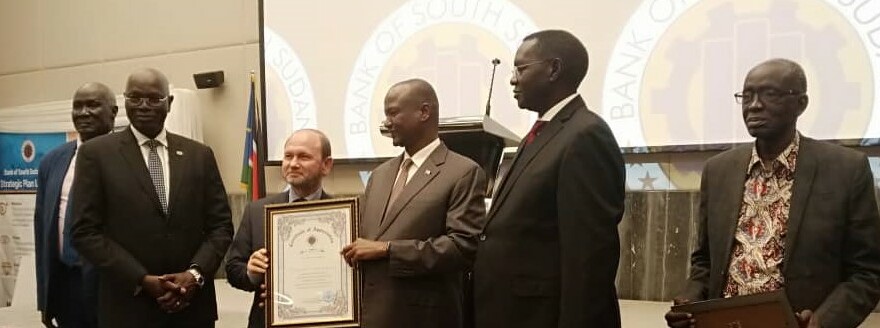The Bank of South Sudan (BOSS) on Tuesday launched an ambitious five-year strategic plan to bolster and revamp the country’s fragile economy.
BOSS Governor Johnny Ohisa Damian said the Strategic Plan 2023-2027 will help transform the Bank, and foster and maintain price and financial stability within the next five years.
“In this strategic plan, the Bank will focus on five strategic areas, stakeholders’ confidence and price stability. We want to ensure that all our stakeholders are happy with the way we work,” he said. “Together with the Ministry of Finance, we want to make sure we implement policies that are relevant to the development of this country. On our part, we will contribute to monetary and physical policy.”
According to Ohisa, over-dependence on imports has contributed to the fragility of the economy.
“Among external shocks or challenges that have faced the Bank in its efforts to maintain monetary and price stability is the high dependence on imported commodities yet we have been relying on oil revenues since independence,” he added.
For his part, Taban Deng Gai, the Vice President in charge of the Infrastructure Cluster, attributed skyrocketing commodity prices to low domestic food production and a lack of diversification of the economy.
“The food we are eating, the fuel, cooking oil, and sugar are either imported from Uganda or Kenya. So, how can the country control the economy and prices in the market,” he queried. “Until we become productive, it will be difficult for us to control market prices because these goods come from somewhere with conditions, including the condition of dictating prices here.”
Meanwhile, Finance Minister Dier Tong Ngor said the strategic plans must be mandatory and made law.
“This strategic plan should be made a law. We should pass laws that require all government institutions to have a strategic plan so that we allocate resources based on their programs,” he advised.
The Bank’s strategic plan involves among other things, building confidence and trust with stakeholders, price stability, the reorganization of its systems and operations, building diplomatic capability, and buttressing human resources capacity.




